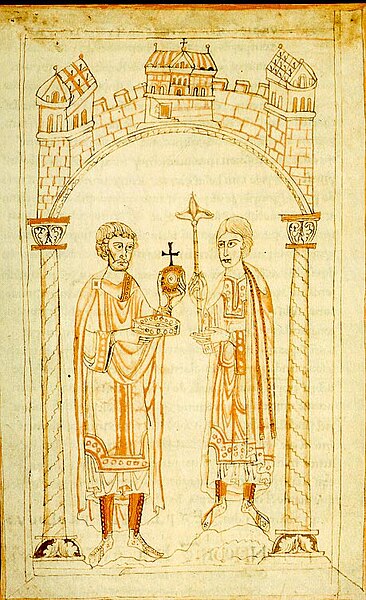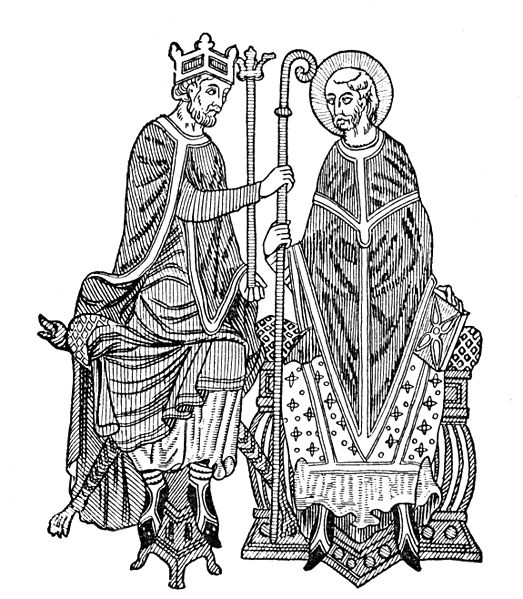First Council of the Lateran
The First Council of the Lateran was the 9th ecumenical council recognised by the Catholic Church. It was convoked by Pope Callixtus II in December 1122, immediately after the Concordat of Worms. The council sought to bring an end to the practice of the conferring of ecclesiastical benefices by people who were laymen, free the election of bishops and abbots from secular influence, clarify the separation of spiritual and temporal affairs, re-establish the principle that spiritual authority resides solely in the Church and abolish the claim of the Holy Roman Emperor to influence papal elections.
Henry IV ceding his rule of the Holy Roman Empire to his son, Henry V.
Canons 2, 4 and 10 ended the practice of the Holy Roman Emperor naming bishops and the pope.
Henry V, Holy Roman Emperor died leaving his kingdom in a much weakened condition.
The Concordat of Worms, also referred to as the Pactum Callixtinum or Pactum Calixtinum, was an agreement between the Catholic Church and the Holy Roman Empire which regulated the procedure for the appointment of bishops and abbots in the Empire. Signed on 23 September 1122 in the German city of Worms by Pope Callixtus II and Emperor Henry V, the agreement set an end to the Investiture Controversy, a conflict between state and church over the right to appoint religious office holders that had begun in the middle of the 11th century.
Calixtus II
20th-century interpretation of a medieval king investing a bishop
Henry V renounced his right to invest bishops and abbots with ring and crosier (pictured).





